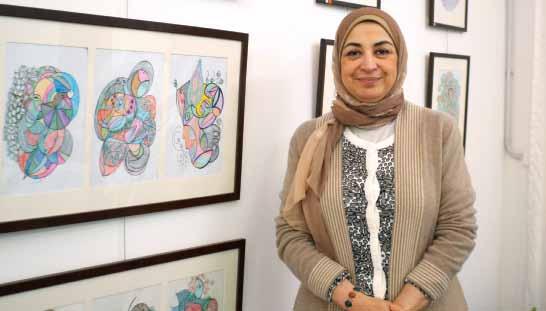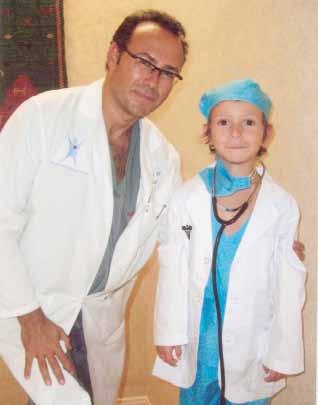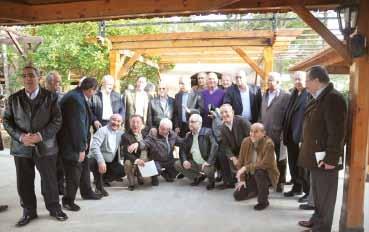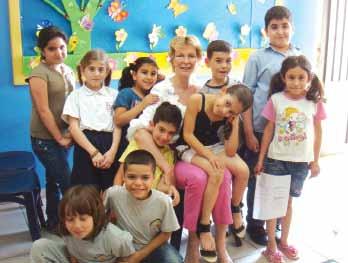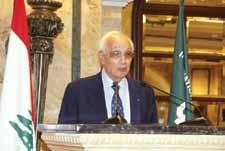
7 minute read
Dying with Dignity
In the summer of 2009 my father was diagnosed with lung cancer. In a few seconds, the safe world that I had known tumbled around me. It was the beginning of a role reversal that would last for 10 months. Suddenly the rock in my life was crumbling. A doctor himself, he took charge at the beginning – as he always did. But all too soon, the chemotherapy and radiations therapy took their toll. His strength was leaving him. “I’m sorry to do this to you,” he told me sadly as he handed the reins of his medical care over to me and my distraught mother. Stumped, we didn’t know how. Somehow we had to put our emotions aside and become caregivers. But we had never dealt with cancer and didn’t know where to begin. Seeking advice from his oncologist turned out to be useless. Years of dealing with the terminally ill had long desensitized him. The internet became my best friend. Horrible things happen to cancer patients. Frightening things. At most, we could only watch helplessly. We did the best that we could but I knew it wasn’t enough. I had read about the term “hospice” in the internet: a group of doctors and nurses who voluntarily come to your home and look after a terminally ill patient. They also give the desperately needed compassionate support and advice for caregivers. At that time, hospice didn’t yet exist in Lebanon. If there was a geriatrics care unit we hadn’t heard of it either. Many times we broke down and cried (out of my father’s sight). We needed hospice care desperately. On June 8 2010, my father succumbed to his illness and I lost the most caring and loving man that I had ever known. Until this day, our lonely and frightening caregiving days continue to haunt me. My father – and all terminally ill people and their caregivers - deserve better. These two articles are dedicated to Dr. Fouad Salim Haddad – my father.
Reem Haddad
Those who have been through it know only too well the agonizing frustration and petrifying responsibility of taking care of a terminally ill loved one. Questions are many. Am I doing the right thing? Is this a normal reaction to a medication? Why is he doing this? Should I rush her to the ER? What am I supposed to do now? The confusion is very scary. You have one chance to do it and do it right. If you don’t, it could be disastrous. And then, of course, there’s the huge emotional factor of helplessly watching your loved one suffer psychologically and physically. Dr. Hibah Osman ‘86 had purposefully stayed away from this domain during her doctoral studies in the US and chose what she described as ‘happy medicine’ – “mothers, birth, babies,” she said. “Family medicine.” When she returned from the US, she joined the Department of Family Medicine at AUBMC and successfully practiced her “happy medicine”. And then came in an elderly patient. She was diagnosed with cancer. Despite her family’s wide knowledge of medical care, they were at a loss. Osman stepped in and began managing her patient’s care. As her family’s anxieties begin to ease, so did her patient. A short while later, the woman passed away. The family mourned, of course, but there was a distinct feeling of peace in knowing that they had given their mother their best care and allowed her to die with dignity. It was a turning point for Osman. “I realized what a major difference palliative care can make to patients and their families, and that there is a big need for palliative care in Lebanon,” she said. Most of the time, patients and their families are left on their own to figure out how to manage and deal with an illness. Osman noticed her patients’ stress and confusion and began to look into palliative and hospice care. She attended international workshops and studied hospice care organizations abroad. Finally, she felt ready to found an NGO. Colleagues expressed great interest and before long she had established a five-member Board of Trustees. Balsam, the Lebanese Center for Palliative Care, was born in 2011 with the aim of giving everyone – regardless of religion and nationality – end-of-life care. Families are never billed for the service. “We completely depend on donations,” explained Osman. “We can’t burden distraught families with bills.” So far it’s a skeleton staff of seven but the word is spreading quickly – even quicker than Osman expected. One morning, she received an email from a man residing in Sweden. His mother-in-law, he wrote, lives in a Palestinian camp and is dying from cancer. Her elderly husband is unable to care for her. All her children are abroad. Could Balsam help out? Osman and her team showed up to the camp and located the woman. Much to the distraught husband’s relief, they took over managing her care. Despite donations, Balsam’s funds remain meager and the woman needed a nurse to bath her regularly. In fact, it was her fear to die while unwashed. As luck would have it, Osman (mother of three children) was on a play date when she received a call that a nurse was willing to do the job at reduced rates. Still, those rates were beyond Balsam’s capacity. Then and there, the host mother took out her checkbook and offered to pay for all the baths the dying woman needed. A few weeks later, the woman died. She had been bathed that same morning - as was her wish. “A lot of what we do is social,” said Osman. “The medical part is making sure that the patient is comfortable and not in pain or getting bed sores. But a major part of our job is sitting down and telling the families
what to expect, what to do, and making them feel comfortable in what they are doing. Most of them are lost and scared of doing the wrong thing. There’s nothing out there to guide them. I tell them we are here and just a phone call away.” A 2010 study of 151 patients published in The New England Journal of Medicine demonstrated that getting early palliative care helped people with lung cancer live three months longer, compared with those given standard care. Balsam currently boasts a team of Osman, two part-time nurses, one full-time nurse, one psychologist, and a pharmacist. Once a week the team meets and discusses each patient. At the moment, the small team can only cover Beirut but Osman’s ultimate goal is to train medical staff all over the country in palliative care. “Everyone should have a right to this care,” she said. “In Beirut, in Akkar, in Baalbeck, in the south, everyone.” Taking it a step further, Osman has been lobbying to change laws and policies for palliative care to be recognized in Lebanon (currently, there are major restrictions on medication). Last May, Balsam and the Lebanese Cancer Society established a committee, under the Ministry of Public Health, to set a strategy for palliative care in Lebanon. “This is a huge accomplishment,” said Osman proudly. In class, Osman repeatedly tells her medical students that their job ultimately goes well beyond physical care. “Hold their hand,” she advises. “Talk to them. Listen to them. Empathize. Put them at ease.” Just a few weeks earlier, Balsam was called in during the last stages of cancer. As soon as the medical team walked in, the patient began to cry. “Look what I’ve been reduced to,” she said. “My children carry me to the bathroom. I feel so humiliated”. The Balsam team controlled her pain. They arranged for the patient to have a portable toilet right next to the woman’s bed - making her more independent. An air mattress was placed under her, easing the bed sores creeping up her body. Two days later, the patient died. “You have no idea what you have done for us,” her daughter told Osman. “My mother became so much happier and actually got up to have a meal with us.” Sometimes that’s all it takes. “This is the most rewarding thing I have ever done,” said Osman. “Yes, I lose my patients. I feel their loss and I cry over them. But at the same time, I know that what we have done for the patients and their families is so immense. We are giving them back their dignity and their families are in peace.”
For more information or donations to Balsam, go to www.balsam-lb.org or call 9611748574.


